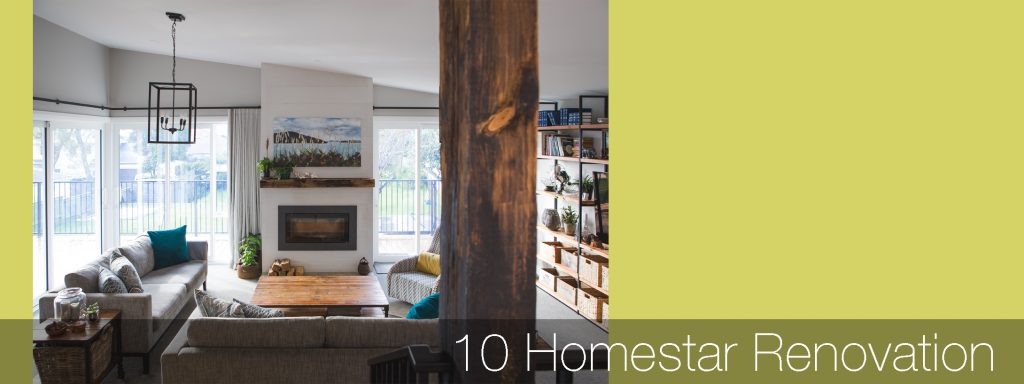Is It Worth Considering Sustainability When Renovating Your Home
April 1, 2020

So the decision is made – you want to renovate your home. Have you considered how you can make the house warm, dry, comfortable and efficient? A sustainability consultant/ builder can analyse the state of the property and give homeowners ideas on how best to incorporate ‘green’ ideas into the renovation. Sustainable renovation or construction considers simple steps that reduce consumption of energy and covers both the indoors and the outdoors. Those particular about ethical consumerism are increasingly incorporating carbon footprint reduction and eco-friendly solutions into their home renovation.
Rainwater Tank
Rainwater tank is a simple and inexpensive way of reducing your bills by making use of the abundant rainwater that we get. It can be used for washing clothes, flushing and when treated properly it can be used even for drinking. You can make use of a rainwater tank even if your home is linked to the town water supply. Auckland’s recent long dry spell and with water restrictions in play homeowners have realized how even a rain barrel or a rainwater tank can help. A slimline tank can be placed alongside a fence or a house wall and often do not require council consents.
Insulation
Your home should keep in the warmth during winter and keep it cool in the summer. Insulated ceiling and floors, and walls will ensure the house is easy to keep warm. A professional can check underfloor and ceiling insulation and advise if it is adequate. They can examine windows and doors to see if they fit properly and that their frames are not allowing draughts in. While homes need to be well ventilated to keep the air fresh and dry, it is important to block up draughts. Chimneys and fireplaces that are not being used can be blocked up. Ceilings and floors, electrical and plumbing passages and extractor fans, recessed lighting can all be checked for air leakage. Double glazing is a standard in most new homes but existing homes can make use of it especially if the windows require substantial repairs.
Smart Rooms
The kitchen, bathroom and laundry are some of the most used spaces in the property. Appliances that fit into your needs and are not power hungry are the ideal choice. Clothes dryers, dishwashers, fridges and freezers, heat pumps and air conditioners, television and washing machines are a major source of energy use. Energy and water rating labels are easy indicators to measure the efficiency of the product. Making use of LED lighting throughout the home will make a difference to electricity use. Opting for tapware that have WELS (Water Efficiency Labelling Scheme) rating will improve conservation without compromising waterflow.
Achieve a Homestar Rating
Homestar is a comprehensive, independent rating tool, run by the not-for-profit Green Building Council that measures the health, warmth and efficiency of New Zealand houses. A home is rated on a scale from 6 to 10. The higher rating is based on a heavier insulated thermal envelope for optimal energy efficiency, so that the home will be warm in winter and cool in summer (and thus cheaper to heat). Excellent ventilation and moisture control are essential, meaning less mould and a healthier environment when winter illnesses strikes.
The minimum Homestar standard of 6 is for a home of good quality with a healthy indoor environment. A 10 Homestar rating is for home built to high world leading standards. A renovation project or a new build should aspire to achieve a high rating to ensure the home is fit for the future. Once the basics such as insulation, ventilation, water efficiency and appliances are in place, the home will give back to its occupants the comfort and cost savings that the outweigh the investment.
You don’t need to install flash new costly gadgets to get a good Homestar rating; nearly half the points a house can earn relate to energy, health and comfort. That’s because getting the basics right – good orientation for sun, high levels of insulation and controlling moisture – is more vital to creating a healthy and efficient home than just the appliances.
To rate a home’s performance and environmental impact, Homestar awards points across seven categories. These are energy, health and comfort, water, materials, waste, site and home management. There is also an optional innovation category.
In the eventual analysis, an eco-friendly home renovation is an investment in not just a healthier home with a cleaner lifestyle; but also a cost-effective one in the long run. It increases the value of the house and is preferred by buyers over a house which is not. Look at it from a short-term or long-term perspective, simple or extensive sustainable renovations is the future. Contact at least one experienced sustainable home renovation specialist before deciding on who to trust your home renovation project with.






